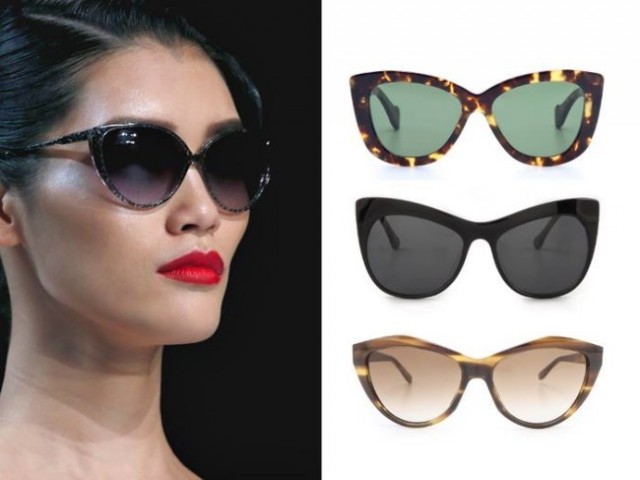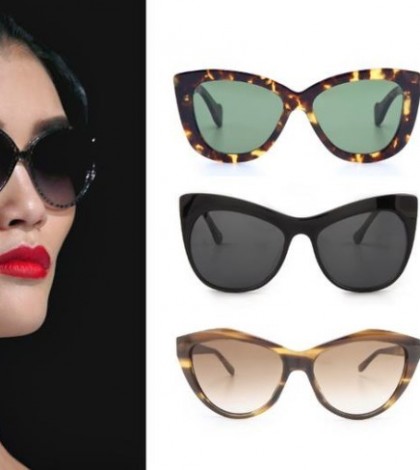Sunglasses play an important role in our lives: they protect our eyes and serve as perfect fashion accessories to complement our look. Unfortunately, many forget about the primary function of sunglasses, while others, on the contrary, pay too much attention to advertising slogans and myths created by the marketing companies. So, before you make a decision about going to the shop, you should think of what you really know about the sunglasses.
Myth #1. Sunglasses protect your eyes from the sun and bright light, which has a positive effect on eyesight.
- First, glasses must protect your eyes from harmful UV rays. Secondly, not all dark or tinted glasses have the right to be called “sunglasses.” After all, trendy color and design does not determine the degree of protection.

Myth #2. The darker the better.
- Protective properties of sunglasses are not dependent on the degree of opacity, and the lenses. Moreover, if tinted glasses simply do not provide UV protection, it may even harm the eyesight. After all, when wearing dark sunglasses, we artificially make our pupil react to low intensity of light. Consequently, our retina gets even more ultraviolet rays, than without glasses. That is why good sunglasses must have high-quality filters, which protect the eyes from excessive sunlight and the harmful effects of UV radiation.
Myth #3. Sunglasses help to avoid the appearance of wrinkles.
YES. Bright sun light makes us squint, causing the appearance of facial wrinkles on the forehead and around the eyes. DKNY sunglasses allow your eyes to relax, which significantly reduces and prevents the appearance of wrinkles.
Myth #4. Sunglasses help preserving your vision and preventing vision loss.
YES. The main cause of acute deterioration of vision is corneal opacity. Blood vessels appear between the retina and the fundus of the eye, while frequent and intense exposure to UV rays leads to the development of cataracts and increases the risk of blindness in dozens of times. Therefore, wearing sunglasses reduces the risk of eye disease.
Myth #5. It is absolutely safe to look directly at the sun through the sunglasses.
No. Direct sunlight can cause vision loss – that’s why it is so dangerous to look at the sun without special tools. Starring at the sun even with sunglasses may cause headaches, temporary vision loss and, in some cases, more serious problems.
Myth #6. Glass lenses are better than plastic lenses.
- Good plastic lenses can hold the ground with glass lenses. Therefore, the material depends on your personal taste and preferences.
Myth #7. Lens color is important.
YES. Brown, gray and green lenses only slightly change the shades of surrounding objects. Red lenses have a negative impact on the nervous system, causing rapid fatigue, so they should not be worn too often and long. Pink, yellow and orange lenses increase image contrast and reduce eye fatigue, thus preventing the deterioration of vision. However, they are hardly suitable for sunny days.

